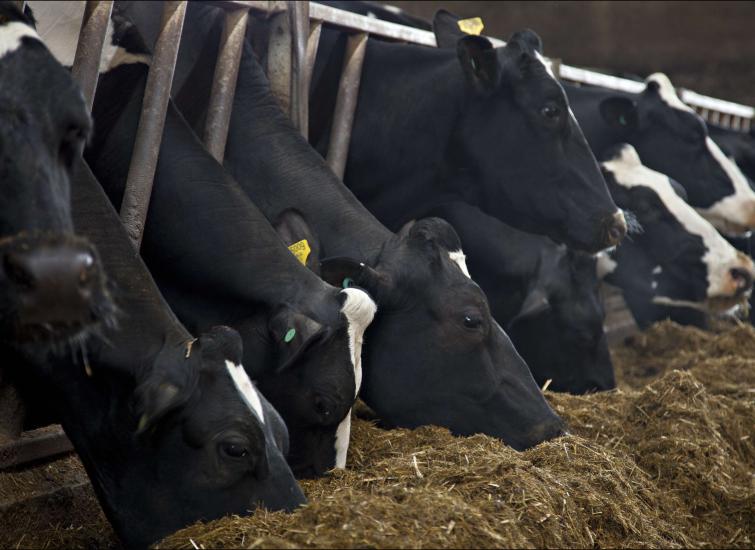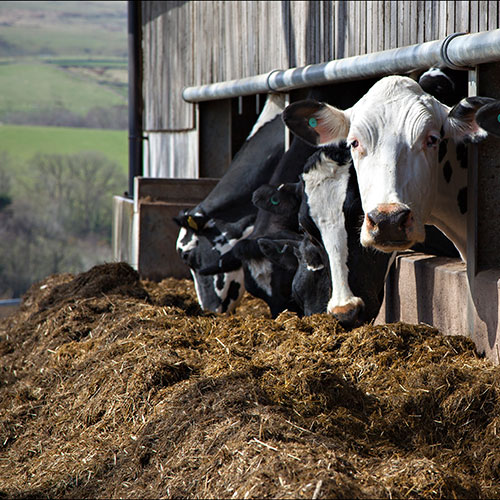X-Zelit versus DCAD diets for your dry cows
Why make life difficult? X-Zelit is the easy way to transition healthy, profitable cows...

X-Zelit makes it simple to effectively prevent both clinical and subclinical hypocalcemia in dairy cows.
It is well docummented that hypocalcemia or milk fever is the result of low blood calcium at calving. Farmers may be aware of a number of treatments to increase the level of calcium pre and post calving, however, studies have shown that X-Zelit - a calcium binder, stimulates the cow to mobilize her own calcium reserves for effective milk fever prevention.
Treatments
Intravenous calcium will give a quick response to a clinical case and often save a cow’s life, however it doesn’t reduce the problem; IV calcium, may cause fatal cardiac problems and perhaps most significantly, shut down the cow’s own ability to mobilise the calcium she requires at this critical time. Cows treated with IV calcium often suffer a hypocalcaemic relapse 12 to 18 hours later.
Subcutaneous and oral calcium supplementations can be given around calving but are often not given as required and there is only a small amount of absorption. Energy drenches can be used to provide a quick response to energy deficiency. Neither of these offer a preventative effect and both are poor for reducing subclinical hypocalcaemia/ milk fever.
X-Zelit vs. DCAD
X-Zelit has been proven to increase blood calcium levels and decrease hypocalcemia vs a DCAD diet. The diagram below also shows the ease of dry cow managment with X-Zelit versus the complications of managing a DCAD diet.

A study undertaken at Cornell university looked at X-Zelit as a calcium binder and an alternative to DCAD management. It found that a low calcium diet approach with X-Zelit substantially improved both blood calcium post-calving and milk production. It also showed trends towards positive effects on reproductive performance, immunity, and rumination time.
The efficiency of X-Zelit compared with traditional anionic salts (DCAD diet) was also demonstrated through blood sampling on a farm trial in the US. Results showed X-Zelit increased the average level of plasma calcium and decreased the frequency of subclinical hypocalcemia from 80%–90% to 15%–20%.

〈 BACK














